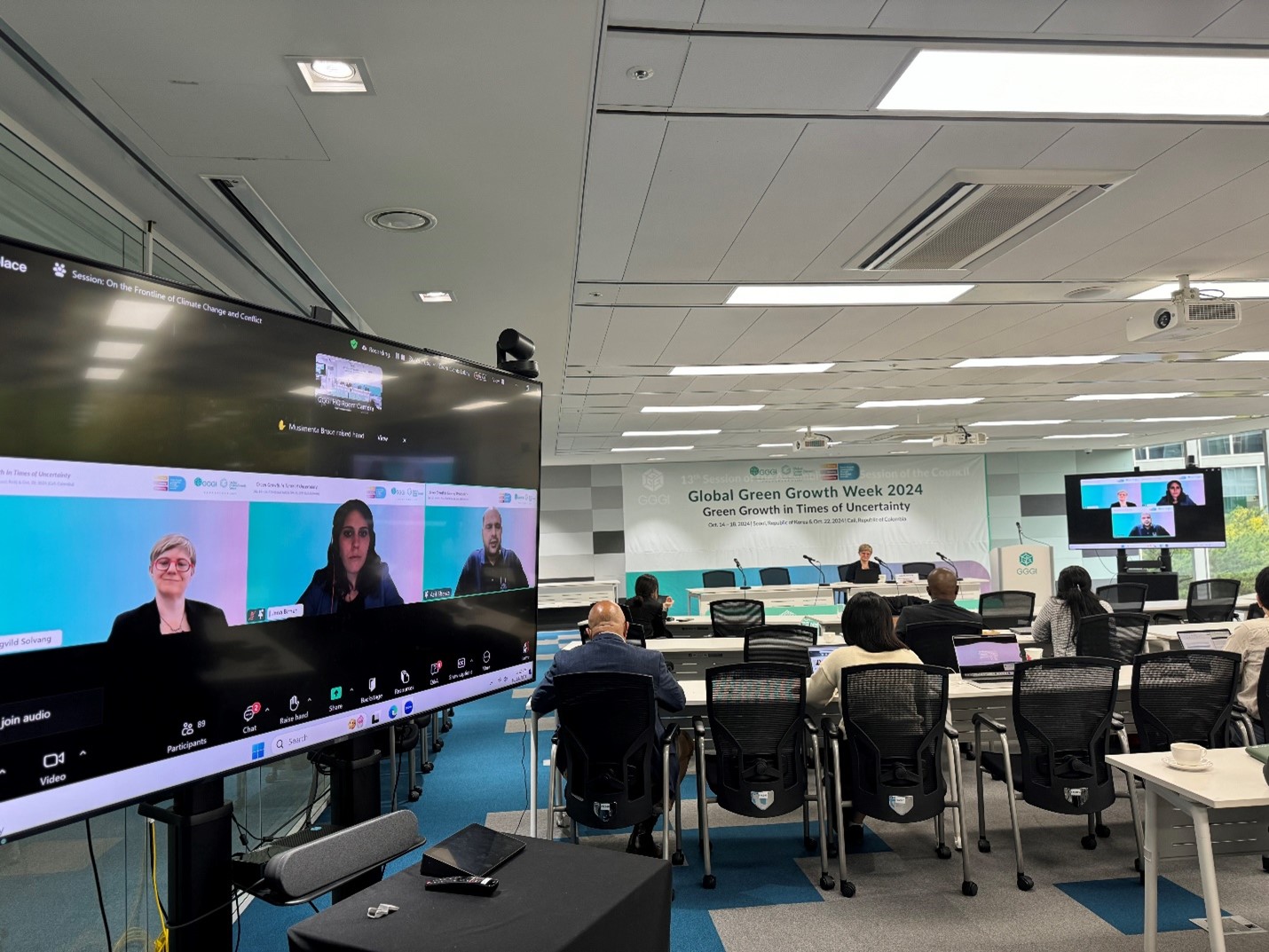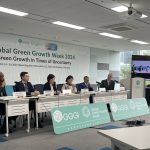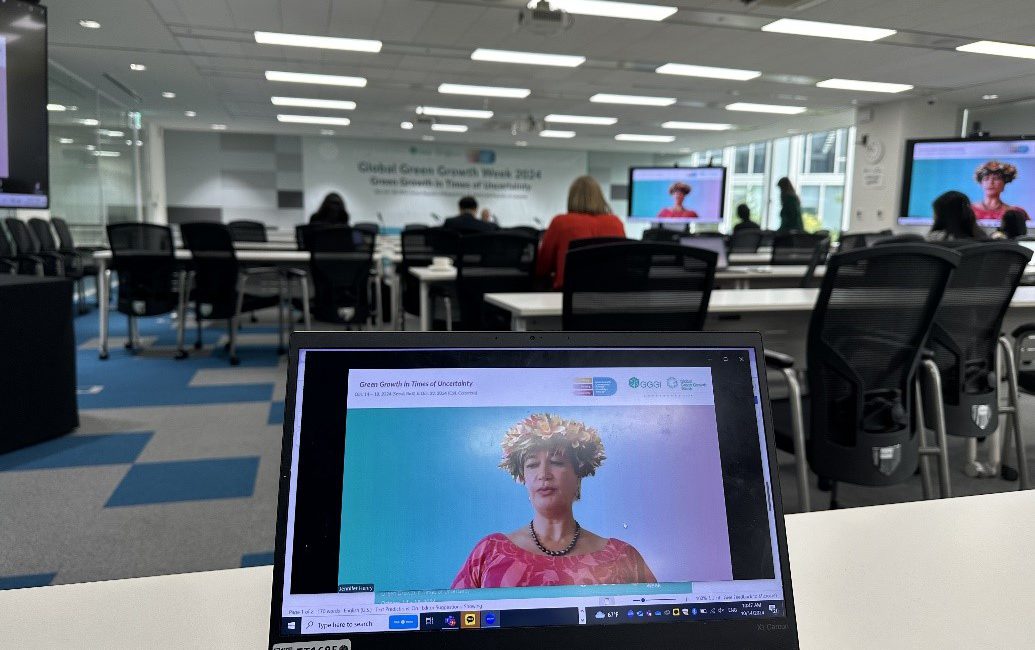
DAY 1 – October 14, 2024
At a Glance: What sessions took place today?
The Global Green Growth Institute (GGGI) welcomed a full house for the first day of Global Green Growth Week 2024 under the theme “Green Growth in Times of Uncertainty”. During the opening session, GGGI’s President of the Assembly and Chair of the Council H.E. Ban Ki-moon and GGGI’s Director-General set the stage for the week ahead.
Together we can turn enormous challenges into meaningful opportunities and historic successes for a safer, greener and more sustainable world for ourselves and for generations to come.” – H.E. Ban Ki-moon, President & Chair of the Assembly, and the Council, GGGI
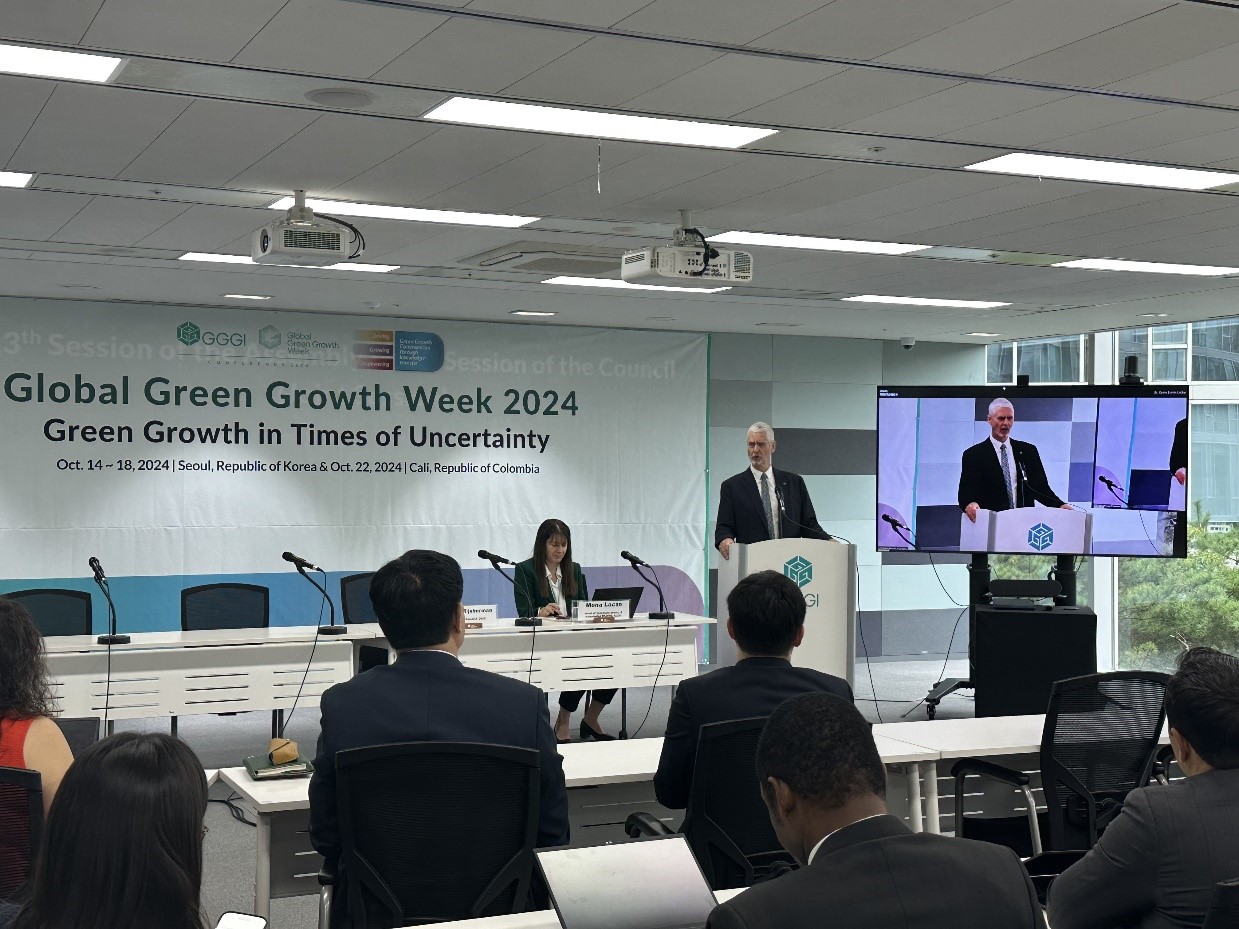
During his opening remarks GGGI Director-General Dr. Frank Rijsberman reflected on GGGI’s story over the past 8 years of his time at the organization’s helm, sharing success stories from Uzbekistan and setting the stage for GGGI leadership to share program insights, outcomes, and emerging perspectives across the week of events.
“GGGI already focused on green investment services when I joined…but I was amazed at how low the targets were. I think our initial targets were below mobilizing $100 million by 2020. Now we’ve successfully gone through increasing our ambition and mobilizing money that is not big enough to close the climate finance gap, but demonstrates to our member governments that well-structured projects and well-structured initiatives can actually find funding,” Dr Rijsberman shared.
“If you don’t think big, and if you don’t swing for the fences, you pretty much won’t know where you’ll end up. It might be okay. But it’ll never be fantastic. So we’ve tried to create a culture where people are willing to think big and sometimes take chances. And that is how I think we’ve been able to create some extraordinary results.”
“So, I’m very proud of what we have achieved together in GGGI. Success breeds success.”
The first day of the conference featured 10 sessions centered around the green conversations unfolding in the Asia and the Pacific, applications of GGGI’s flagship Green Growth Index to the African context, and contemplations on this year’s conference theme regarding the interactions between climate change and conflict sensitivity.
The Green Growth Index
Structured around the four key dimensions outlined in GGGI’s Green Growth Index – (1) natural capital, (2) green economic opportunity, (3) efficient and sustainable resource use, and (4) social inclusion – the session “Green Growth Index – Measuring Green Growth Performance in Africa” session invited reflection on the results of GGGI’s collaboration with government and international partners in Africa for application of the framework at regional and national levels. Speakers discussed the continuing challenges posed by a lack of data availability in hindering a comprehensive and accurate measure of green growth performance in Africa.
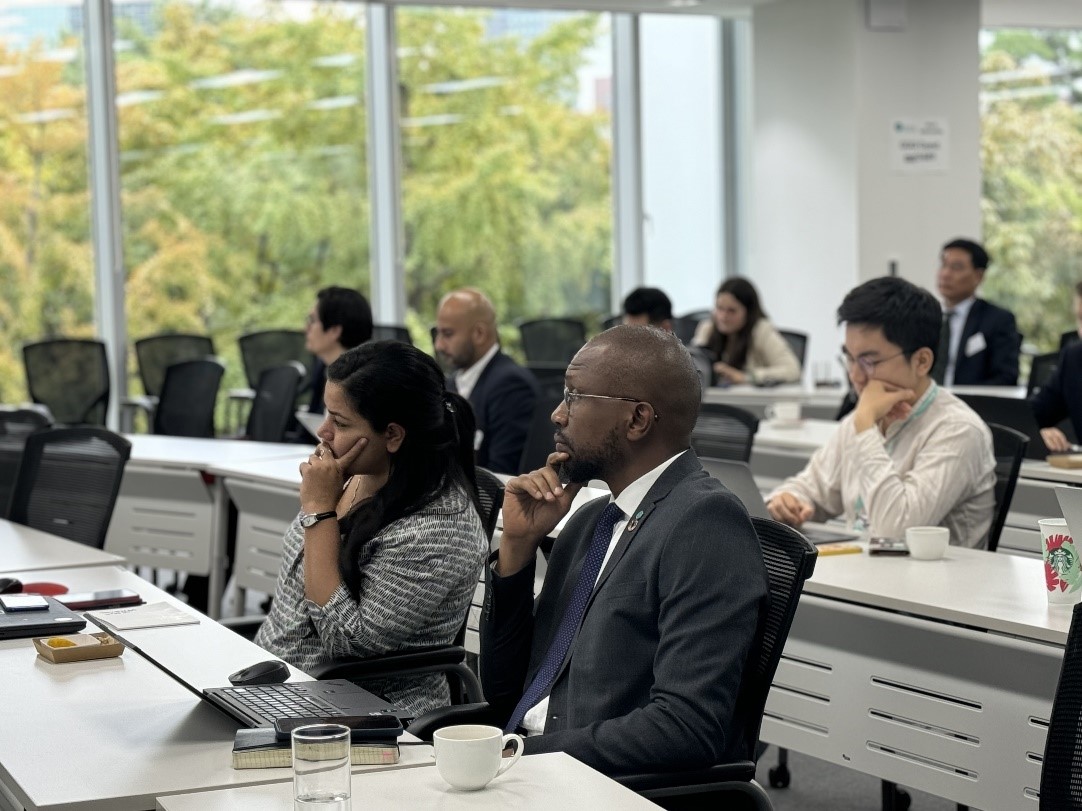
In Asia and the Pacific Regions…
The opening four knowledge sharing sessions on Day 1 canvassed the issues surrounding efficient and sustainable resource use in the Asia and Pacific regions, inviting dialogue from an impressive array of speakers on topics such as “Greening Pacific Financial Systems”, “Green Buildings”, “Regional Actions in Managing Waste” and “Climate Finance in Asia”.
In the Pacific, there were sobering conversations on the complex matrix of challenges being faced by island and coastal communities dealing with the firsthand consequences of climate change extremities and the necessity of large-scale climate and adaptation funding.
Invited speaker Elizabeth Genia, Governor of the Bank of Papua New Guinea, shared:
“Climate finance is needed for mitigation because large-scale investments are required to significantly reduce emissions. This is also equally important for adaptation, as significant financial resources are needed to adapt to the adverse effects and reduce the impacts of a changing climate.”
In a broader discussion about “Regional Actions for Managing Waste” in the Asia context, panelist and GIZ Advisor for ASEAN, Giang Phong, shared that in the waste management sphere, “global action is not enough – we need more regional cooperation.”
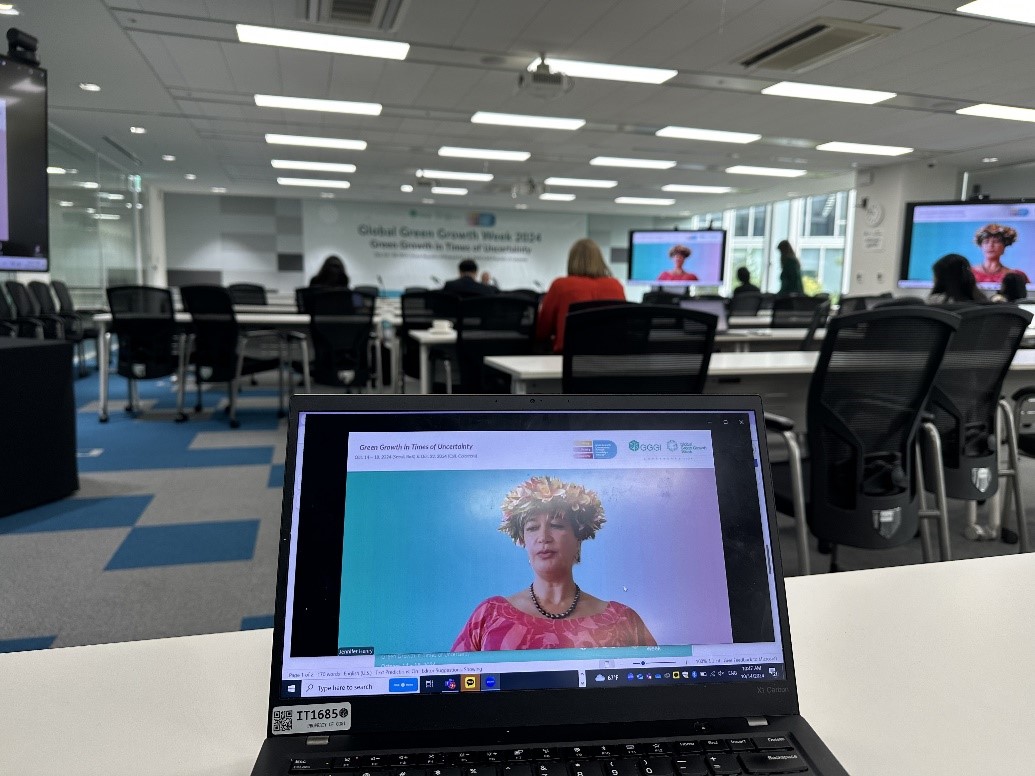
Operating in conflict contexts
The thematic sessions “On the Frontline of Climate Change” and “Changing Practices from Within” explored how internal “peace champions” within institutions can shift conflict sensitivity approaches away from being merely tick-box exercises to genuinely strengthening climate action and green growth.
Discussing the intersection which climate change work often has with conflict-burdened places during the “On the Frontline of Climate Change and Conflict” session, UNHCR Partnerships Associate, Jana Birner, had this to say:
During the closing session on “Changing Practices from Within”, Senior Director of Peace and Development Partnerships at Conservation International, Janet Edmond, spoke of the importance of prioritizing the 4 P’s – People, Places, Processes, and Policies – in designing program interventions in conflict-ridden areas.
GGGI Head of Climate Action & Inclusive Development (CAID), Ingvild Solvang, confirmed the need to embed conflict-sensitivity as a tool for risk management:
“We do not want, as a consequence or an impact of GGGI’s programs – including one which is on violent conflict – we do not want to cause it, we do not want to sustain it, and we do not want to aggravate the violence conflict as an unintended impact of our operations.”
“It’s more about [de-risking] interventions so that we are able to work in contexts where our interventions are most needed.
“It is about ensuring that we are capable, able, competent enough to go in and work in those areas that need us the most – which are the most fragile and the most climate-vulnerable contexts there are.”
